Thales of Miletus, Θαλῆς ὁ Μιλήσιος, ca. 624 BC-ca. 546 BC
Pre-Socratic Greek philosopher and one of the Seven Sages of Greece. Many regard him as the first philosopher in the Greek tradition, while some also consider him the "father of science."
"ἃ τοῖς ἄλλοις ἐπιτιμῶμεν, αὐτοὶ μὴ δρῶμεν"
"That for which we blame others, let us not do ourselves. "
|
 |
Euclid of Alexandria, Εὐκλείδης, 365 - 300 BC
His Elements is the most successful textbook in the history of mathematics. In it, the principles of what is now called Euclidean geometry are deduced from a small set of axioms.
|
 |
Charles "The Hammer" Martel, Carolus Martellus, ca. 688
"... the events that rescued our ancestors of Britain, and our neighbors of Gaul [France], from the civil and religious yoke of the Koran." -- Gibbons
|
 |
Sir Isaac Newton, 4 January 1643
Physicist, mathematician, astronomer
|
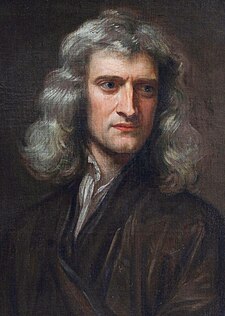 |
Nicolaus Copernicus, 19 February, 1473
The first astronomer to formulate a scientifically based heliocentric cosmology that displaced the Earth from the centerof the universe. His epochal book, De revolutionibus orbium coelestium (On the Revolutions of the Celestial Spheres), isoften regarded as the starting point of modern astronomy and the defining epiphany that began the Scientific Revolution.
|
 |
Galileo Galilei, 15 February 1564
Physicist, mathematician, astronomer.
"In questions of science the authority of a thousand is not worth the humble reasoning of asingle individual."
|
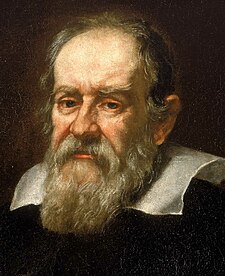 |
Charles Robert Darwin, 12 February 1809
Darwin's scientific discovery remains the foundation of biology, as it provides a unifying logical explanation for the diversity of life.
|
 |
Thomas Alva Edison, February 11, 1847
Inventor
|
 |
William Bradford Shockley, February 13, 1910
Along with John Bardeen and Walter Houser Brattain, Shockley co-invented the transistor
|
 |
Albert Einstein, 14 March, 1879
Theoretical physicist.
|
 |
Johann Carl Friedrich Gauss, 30 April 1777
Mathematician and scientist who contributed significantly to many fields, including number theory, statistics, analysis,differential geometry, geodesy, electrostatics, astronomy, and optics.
|
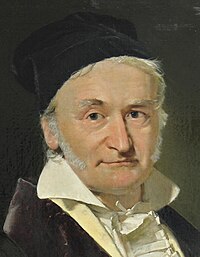 |
Max Karl Ernst Ludwig Planck, April 23, 1858
Founder of quantum theory.
|
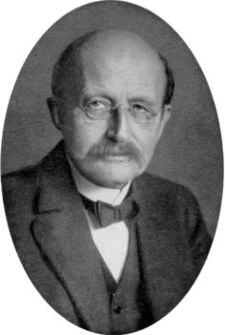 |
Leonardo di ser Piero da Vinci, 15 April, 1452
scientist, mathematician, engineer, inventor, anatomist, painter, sculptor, architect, botanist, musician and writer.
|
 |
Santiago Ramůn y Cajal 1 May, 1852
One of the founders of neuroscience.
|
 |
James Clerk Maxwell, 13 June, 1831
Developed classical electromagnetic theory.
|
 |
Francis Harry Compton Crick, June 8, 1916
Molecular biologist, physicist, neuroscientist; most noted for being one of the co-discoverers of the structure of the DNA molecule in 1953.
"Christianity may be OK between consenting adults in private but should not be taught to young children."
|
 |
Eric Arthur Blair, 25 June, 1903
Author. His writing is marked by concise descriptions of social conditions and events and a contempt for all types of authority. He is most famous for two novels critical of totalitarianism, Nineteen Eighty-Four and Animal Farm (a satire of Stalinism).
|
 |
Nikola Tesla, Никола Тесла, 10 July, 1856
Inventor, physicist, mechanical and electrical engineer.
|
 |
John III Sobieski, Jan III Sobieski, 17 August, 1629
A brilliant military commander, most famous for the victory over the Turks in the 1683 Battle of Vienna.
|
 |
Paul Adrien Maurice Dirac, 8 August, 1902
Made fundamental contributions to the early development of both quantum mechanics and quantum electrodynamics.
"I was taught at school never to start a sentence without knowing the end of it."
"The aim of science is to make difficult things understandable in a simpler way; the aim of poetry is to state simple things in an incomprehensible way. The two are incompatible."
|
 |
Ernest Rutherford, 30 August, 1871
Pioneered the orbital theory of the atom through his discovery of Rutherford scattering off the nucleus with his gold foil experiment.
|
 |
Sir Alexander Fleming, 6 August, 1881
Discovered the antibiotic substance penicillin.
|
 |
Ole Christensen RÝmer, 25 September 1644
In 1676 he made the first quantitative measurements of the speed of light.
|
 |
Antony van Leeuwenhoek, 24 October, 1632
Using his handcrafted microscopes he was the first to observe and describe single celled organisms, which he originally referred to as animalcules, and which we now refer to as microorganisms. He was also the first to record microscopic observations of muscle fibers, bacteria, spermatozoa and blood flow in capillaries (small blood vessels).
"Antony van Leeuwenhoek considered that what is true in natural philosophy can be most fruitfully investigated by the experimental method, supported by the evidence of the senses; for which reason, by diligence and tireless labour he made with his own hand certain most excellent lenses, with the aid of which he discovered many secrets of Nature, now famous throughout the whole philosophical World. -- pastor of the New Church at Delft"
|
 |
Captain James Cook, 27 October 1728
Cook was the first to map Newfoundland prior to making three voyages to the Pacific Ocean during which he achieved the first European contact with the eastern coastline of Australia and the Hawaiian Islands as well as the first recorded circumnavigation of New Zealand.
"Do just once what others say you can't do, and you will never pay attention to their limitations again. "
"Ambition leads me not only farther than any other man has been before me, but as far as I think it possible for man to go. "
|
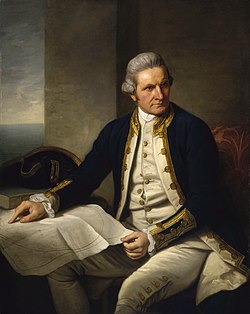 |
George Smith Patton, 11 November, 1885
A leading U.S. Army general in World War II in campaigns in North Africa, Sicily, France, and Germany, 1943-1945.
"Now I want you to remember that no bastard ever won a war by dying for his country. You won it by making the other poordumb bastard die for his country."
"If everybody is thinking alike, then somebody isn't thinking. "
|
 |
Sir Winston Leonard Spencer Churchill, 30 November, 1874
Known chiefly for his leadership of the United Kingdom during World War II. He served as Prime Minister of the United Kingdom from 1940 to 1945 and again from 1951 to 1955. A noted statesman and orator, Churchill was also an officer in the British Army, a historian, a Nobel Prize winning writer, and an artist.
"I like pigs. Dogs look up to us. Cats look down on us. Pigs treat us as equals."
"Men occasionally stumble over the truth, but most of them pick themselves up and hurry off as if nothing ever happened."
"Never, never, never believe any war will be smooth and easy, or that anyone who embarks on the strange voyage can measure the tides and hurricanes he will encounter. The statesman who yields to war fever must realize that once the signal isgiven, he is no longer the master of policy but the slave of unforeseeable and uncontrollable events."
"A love for tradition has never weakened a nation, indeed it has strengthened nations in their hour of peril."
|
 |
Tycho Brahe, Tyge Ottesen Brahe, 14 December, 1546
He is credited with the most accurate astronomical observations of his time, and the data was used by his assistant Kepler to derive the laws of planetary motion. No one before Tycho had attempted to make so many redundant observations, and the mathematical tools to take advantage of them had not yet been developed. He did what others before him were unable orunwilling to do -- to catalogue the planets and stars with enough accuracy to determine whether the Ptolemaic or Copernican system was more valid in describing the heavens.
|
 |
Giacomo Antonio Domenico Michele Secondo Maria Puccini, December 22, 1858
His operas contain an unparalleled manipulation of orchestral colors, with the orchestra often creating the scene's atmosphere. Turandot, his final opera, was left unfinished; and the last two scenes were completed by Franco Alfano based onthe composer's sketches (http://www.youtube.com/watch?v=oG4cVJuYZeM).
"Art is a kind of illness."
|
 |